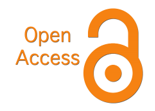Enfoque y Alcance
La Revista @Limentech Ciencia y Tecnología Alimentaria tiene como objetivo principal la divulgación de investigaciones de alto impacto en el ámbito de las tecnologías alimentarias, cubriendo una amplia gama de disciplinas, como Innovación y tecnología en la industria alimentaria, Seguridad y calidad de los alimentos, Biotecnología y microbiología aplicada a los alimentos, Sostenibilidad y economía circular en la producción alimentaria, Ingeniería y procesamiento de alimentos, Ciencia de materiales para empaques y conservación, Inteligencia artificial y automatización en la industria alimentaria, Nutrición y salud pública, y Regulaciones y normativas del sector alimentario. Su propósito es contribuir al perfeccionamiento docente y ser un canal de referencia para el intercambio y desarrollo del conocimiento científico, promoviendo el avance de la ingeniería y la tecnología alimentaria.
Publicada de forma semestral y con cobertura tanto nacional como internacional, la revista ofrece un espacio para el intercambio de conocimientos entre académicos e investigadores de diversos contextos y sectores. Su misión es difundir avances tecnológicos y fomentar la colaboración interinstitucional, atrayendo contribuciones de investigadores con vínculos tanto en la academia como en la industria a nivel global. Además de artículos de investigación originales, la revista también publicará artículos de revisión que analizan el estado del arte, identifican tendencias emergentes y sugieren direcciones futuras en áreas en desarrollo. Los manuscritos deben ser productos de investigación, revisión o reflexión, y deberán presentarse en español e inglés para su evaluación por pares. La gestión editorial de la revista está a cargo de la Vicerrectoría de Investigaciones de la Universidad de Pamplona, con el objetivo de consolidarla como una publicación de excelencia científica, respaldada por un consejo editorial compuesto por expertos de renombre nacional e internacional, reafirmando su compromiso de generar un impacto significativo en la comunidad académica.
Frecuencia de Publicación
Periodicidad de publicación: Semestral.
Vol. 1 de Enero a Junio.
Vol. 2 de Julio a Diciembre.
Política de Acceso Abierto
 |
Esta es una revista de acceso abierto, lo que significa que todo su contenido está disponible de forma gratuita para los usuarios o sus instituciones. El material se publica bajo la Licencia Creative Commons Reconocimiento-NoComercial 4.0 Internacional (CC BY-NC 4.0). Esto permite a los usuarios:
Sin embargo, estas libertades están sujetas a las siguientes condiciones:
|
Esta licencia facilita el uso del contenido de la revista para fines educativos, resúmenes, análisis u otros propósitos no lucrativos, siempre que se respete la autoría original. Para cualquier uso comercial, es necesario obtener el permiso explícito del titular de los derechos de autor.
Tasas por envío y publicación de textos. Gratuidad
La Revista @Limentech Ciencia y Tecnología Alimentaria es una publicación de Acceso Abierto (Open Access) que no cobra ningún costo por el proceso de arbitraje y publicación, que incluye revisión, maquetación, impresión y distribución (APCs). Al tratarse de una revista de acceso abierto, tampoco se aplica ninguna tarifa por la consulta y descarga de la revista.
Antiplagio
A través del uso del software Turnitin, con licencia de la Universidad de Pamplona, la Revista @Limentech Ciencia y Tecnología Alimentaria realiza un análisis de plagio y autoplagio para garantizar la originalidad de los manuscritos recibidos. El editor de la revista registra el documento del autor en este software en línea.
Política de Preservación digital y Uso de identificador Uniforme
La Revista @Limentech Ciencia y Tecnología Alimentaria asegura la preservación digital de sus contenidos mediante la eficiente utilización de Open Journal Systems (OJS). Todos los artículos publicados en la revista están equipados con un Digital Object Identifier (DOI), un identificador persistente gestionado por Crossref, que garantiza la accesibilidad a largo plazo y la trazabilidad de las publicaciones.
Además, la revista forma parte de la Red de Preservación de PKP (PKP Preservation Network), donde sus contenidos son almacenados de manera segura en el sistema LOCKSS, desarrollado por la Biblioteca de la Universidad de Stanford. Esta infraestructura de preservación digital asegura un archivo permanente y confiable para la revista, protegiendo el acceso a la información frente a posibles pérdidas o deterioros digitales.
La Revista @Limentech Ciencia y Tecnología Alimentaria opera actualmente sobre la plataforma Open Journal Systems 3.4.0.9 y está indexada en varios repositorios nacionales e internacionales, incluyendo Latindex y DIALNET. Asimismo, ha sido evaluada y clasificada en la categoría C del índice Publindex Colombia, estatus que mantiene hasta la fecha. Todos los artículos publicados emplean DOI como identificadores uniformes de recursos, los cuales son gestionados y registrados dentro del sistema OJS.
Protocolo de interoperabilidad
La revista no solo implementa protocolos avanzados de interoperabilidad, como OAI-PMH (Open Archive Initiative-Protocol for Metadata Harvesting), sino que también se asegura de que sus contenidos sean fácilmente accesibles y reutilizables por una amplia gama de sistemas de distribución, incluidos repositorios digitales, agregadores (harvesters), y motores de búsqueda académicos. Gracias a la integración con sistemas como LOCKSS y CLOCKSS, la revista garantiza la preservación a largo plazo y el acceso continuo a sus números publicados, brindando una mayor seguridad a lectores e instituciones interesadas en la permanencia de la información. Además, la revista ofrece metadatos detallados y de alta calidad, lo que facilita la indexación y visibilidad en plataformas globales, contribuyendo al intercambio de conocimiento y la ampliación de su impacto académico.
Propiedad y Gestión
La Universidad de Pamplona es la entidad editora que, mediante asignaciones presupuestales para publicaciones periódicas, patrocina la revista bajo la responsabilidad de la Vicerrectoría de Investigaciones. La publicación es editada por la Universidad de Pamplona en Colombia, con su sede principal ubicada en Pamplona, Km 1 Vía Bucaramanga Ciudad Universitaria Pamplona - Norte de Santander – Colombia. Para obtener más información, se puede contactar a través del teléfono: 6075685303, Código Postal: 543057, o visitar la página web: www.unipamplona.edu.co.







